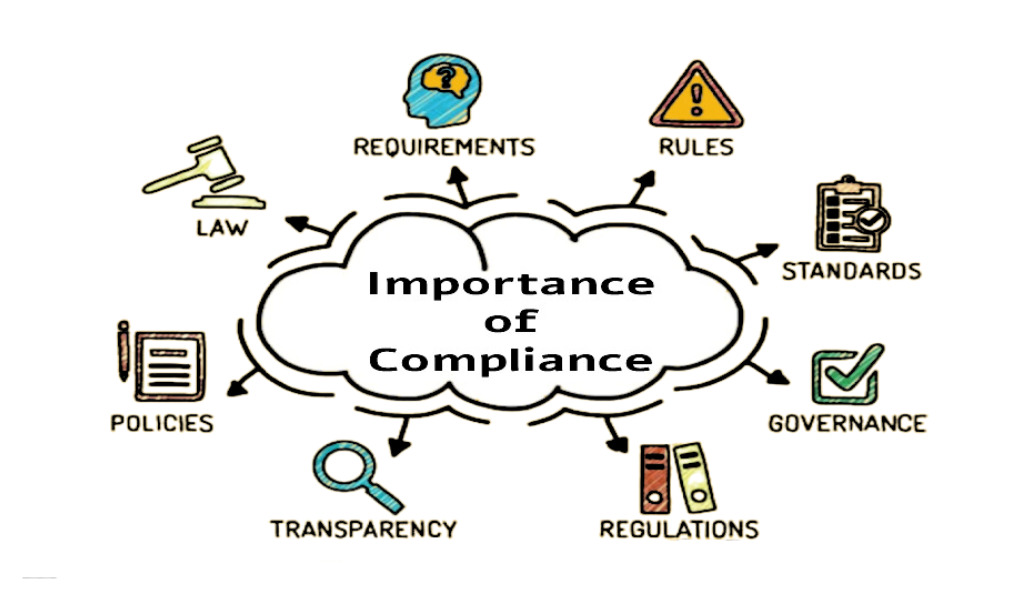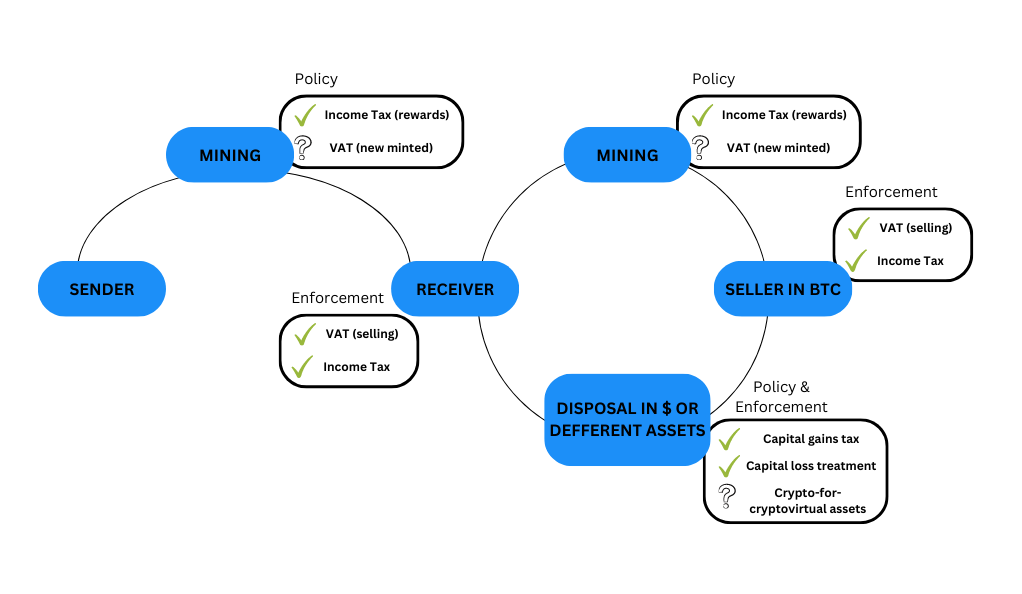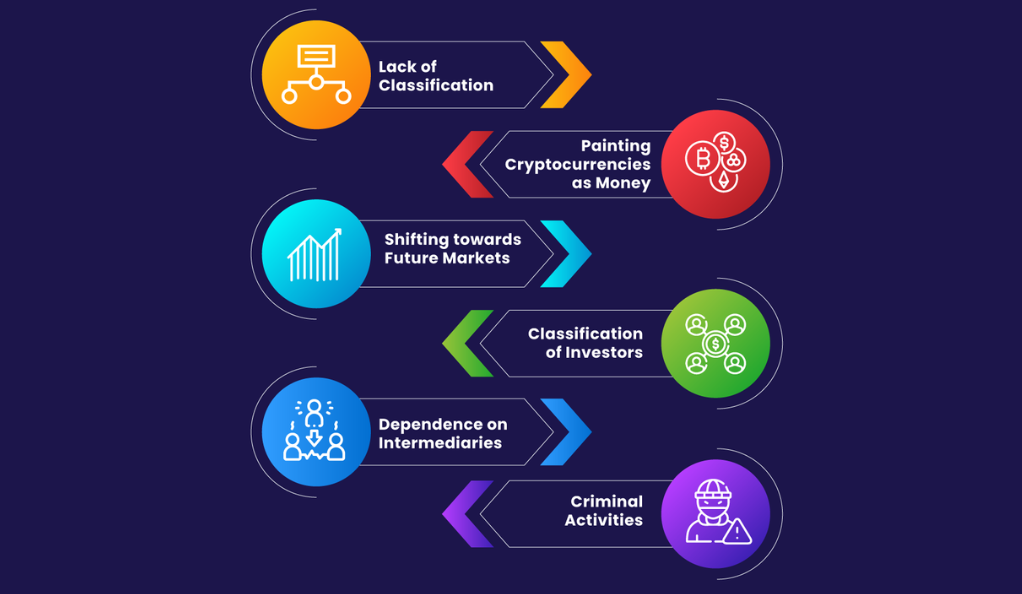Cryptocurrency, a term that once resided on the fringes of financial discussions, has now become a mainstream topic. With the rise of digital currencies like Bitcoin, Ethereum, and thousands of other altcoins, there’s an increasing need to understand and navigate the complex world of cryptocurrency compliance. This introduction aims to shed light on the intricacies of ensuring that cryptocurrency transactions and holdings adhere to existing and emerging regulations.
What is Cryptocurrency?
Cryptocurrency is a type of digital or virtual currency that uses cryptography for security. Unlike traditional currencies issued by governments (like the US dollar or the euro), cryptocurrencies operate on a decentralized platform, typically a blockchain. A blockchain is a distributed ledger that records all transactions across a network of computers.
Why is Compliance Necessary?
- Trust and Credibility: For cryptocurrencies to gain mainstream acceptance, users need to trust that their transactions are secure and that they aren’t inadvertently participating in illegal activities.
- Protection Against Fraud: Compliance ensures that cryptocurrency exchanges and wallet providers implement robust security measures to protect users from fraud and theft.
- Regulatory Adherence: As with any financial system, the cryptocurrency ecosystem must adhere to local and international regulations to prevent money laundering, tax evasion, and other illicit activities.

Key Areas of Cryptocurrency Compliance
| Area | Description |
|---|---|
| Anti-Money Laundering (AML) | Regulations designed to prevent the conversion of money obtained from illegal activities into legitimate assets. |
| Know Your Customer (KYC) | Procedures that verify the identity of customers to prevent fraud. |
| Tax Compliance | Ensuring that cryptocurrency holdings and transactions adhere to local tax regulations. |
| Securities Regulation | Determining whether certain cryptocurrencies or Initial Coin Offerings (ICOs) qualify as securities and ensuring they adhere to relevant regulations. |
Challenges in Cryptocurrency Compliance
- Decentralization: One of the primary features of cryptocurrencies is their decentralized nature, which means there’s no central authority overseeing transactions. This poses challenges for regulatory bodies used to centralized systems.
- Pseudonymity: While cryptocurrency transactions are transparent on the blockchain, they are linked to cryptographic addresses, not real-world identities. This can make tracking illicit activities more challenging.
- Global Nature: Cryptocurrencies operate globally, making it difficult to apply a one-size-fits-all regulatory approach.
The Role of Cryptocurrency Exchanges
Cryptocurrency exchanges, platforms where users can buy, sell, or trade cryptocurrencies, play a pivotal role in ensuring compliance. They are often the point of entry for new users into the cryptocurrency world and, as such, are subject to strict regulatory scrutiny. Most reputable exchanges have robust KYC and AML procedures in place to ensure compliance.
The Rapid Evolution of Crypto Assets
The world of cryptocurrencies has witnessed an explosive growth since the inception of Bitcoin in 2009. From being a niche concept understood by few, crypto assets have transformed into a global phenomenon, capturing the attention of investors, governments, and the general public alike. This section delves into the meteoric rise of crypto assets, exploring their evolution, diversification, and the implications of their rapid growth.
The Genesis: Bitcoin’s Emergence
In 2009, an individual or group under the pseudonym Satoshi Nakamoto introduced Bitcoin, a decentralized digital currency that operated without a central authority. Bitcoin’s underlying technology, the blockchain, allowed for transparent and tamper-proof record-keeping, setting the stage for a revolution in the financial world.
Proliferation of Altcoins: Following Bitcoin’s success, the next few years saw the emergence of numerous alternative cryptocurrencies, commonly referred to as “altcoins.” These include Ethereum, Ripple, Litecoin, and many others, each with its unique features and use cases.
The ICO Boom: Initial Coin Offerings (ICOs) became a popular fundraising method for new cryptocurrency projects around 2017. Startups could raise capital by issuing their tokens in exchange for established cryptocurrencies like Bitcoin or Ethereum. While some ICOs led to successful projects, others were criticized for lack of transparency or outright fraud.
Diversification of Crypto Assets
Beyond traditional cryptocurrencies, the crypto space has expanded to include:
- Stablecoins: Cryptocurrencies pegged to stable assets like the US dollar, providing price stability.
- Non-Fungible Tokens (NFTs): Unique digital assets representing ownership of a specific item or piece of content on the blockchain.
- Decentralized Finance (DeFi): Financial platforms and applications built on blockchain technology, aiming to recreate traditional financial systems without intermediaries.
Regulatory Responses and Challenges
The rapid growth of crypto assets has drawn the attention of regulatory bodies worldwide. While some countries have embraced cryptocurrencies, offering clear regulatory frameworks, others have taken a more cautious or even restrictive approach, citing concerns over financial stability, illicit activities, and investor protection..
Market Volatility and Public Perception
Crypto assets are known for their price volatility. Events such as regulatory announcements, technological advancements, or macroeconomic factors can lead to significant price swings. This volatility, combined with high-profile hacks and misinformation, has shaped public perception, with views ranging from seeing crypto as the future of finance to dismissing it as a speculative bubble.
The Road Ahead: Mainstream Adoption and Integration
Despite challenges, the trajectory of crypto assets seems to be towards greater mainstream adoption. Major financial institutions are exploring crypto integrations, countries are researching Central Bank Digital Currencies (CBDCs), and everyday use cases for cryptocurrencies continue to grow.
Taxing Crypto: The Emerging Dilemma
The meteoric rise of cryptocurrencies has not only reshaped the financial landscape but has also posed significant challenges for tax authorities worldwide. As digital assets become more integrated into mainstream financial systems, the question of how to tax them becomes increasingly pressing. This section delves into the complexities of taxing crypto assets and the dilemmas faced by both individuals and governments.

The Uncharted Territory of Crypto Taxation
Historically, tax systems around the world have been designed for tangible assets and traditional income streams. Cryptocurrencies, with their decentralized and digital nature, don’t fit neatly into existing tax categories, leading to ambiguities and uncertainties.
Classification Challenges
One of the primary dilemmas in crypto taxation is classification:
- Currency or Property? While some countries treat cryptocurrencies as a currency, others classify them as property, leading to different tax implications.
- Capital Gains vs. Income: Depending on the jurisdiction, profits from crypto trading can be treated as capital gains or income, each with its tax rates and rules.
Tracking and Reporting Transactions
Given the pseudonymous nature of blockchain transactions, tracking and reporting for tax purposes become challenging:
- Multiple Wallets and Exchanges: An individual might use multiple wallets and exchanges, complicating the tracking of transactions and cost basis.
- Peer-to-Peer Transactions: Direct transactions between individuals, without intermediaries, can be harder to trace and report.
Tax Evasion Concerns
The decentralized and somewhat anonymous nature of cryptocurrencies has raised concerns about tax evasion:
Lack of Reporting Standards: Unlike traditional banks, not all crypto exchanges provide detailed tax reports for users, leading to potential underreporting.
Cross-border Transactions: Cryptocurrencies can be easily transferred across borders, complicating jurisdictional tax claims.
Regulatory Responses
Governments worldwide are grappling with the challenge of creating comprehensive crypto tax regulations:
- Clear Guidelines: Some countries have issued detailed guidelines on crypto taxation, providing clarity to users.
- Collaborative Efforts: International bodies, such as the Organisation for Economic Co-operation and Development (OECD), are working towards creating a unified approach to crypto taxation.
Implications for Crypto Users
For individual crypto users, the evolving tax landscape means:
- Increased Record-Keeping: Users need to maintain detailed records of their transactions to calculate tax liabilities accurately.
- Seeking Expertise: Given the complexities, many individuals seek the help of tax professionals familiar with crypto regulations.
Revenue Implications of Crypto Transactions
The integration of cryptocurrencies into the global financial system has brought forth a myriad of implications for revenue streams, both for governments and individuals. As digital assets become more prevalent, understanding the potential revenue outcomes and challenges is crucial. This section delves into the revenue implications stemming from crypto transactions and their broader impact on the financial landscape.
The Potential Windfall for Governments
As cryptocurrencies gain traction, they present a new source of revenue for governments:
- Capital Gains Tax: Profits from the sale of cryptocurrencies can be subjected to capital gains tax, providing a significant revenue stream, especially during bull markets.
- Income Tax: For those earning in cryptocurrencies, such as miners or freelancers, their earnings may be subject to income tax.
Volatility and Revenue Predictability
The inherent volatility of cryptocurrencies poses challenges:
- Fluctuating Revenues: The value of cryptocurrencies can swing dramatically, leading to unpredictable tax revenues for governments.
- Market Dynamics: Events such as regulatory changes, technological advancements, or macroeconomic factors can significantly influence crypto values and, by extension, potential tax revenues.
Fairness and Distributional Concerns
The distribution of cryptocurrency holdings raises questions about fairness:
- Concentration of Wealth: A small percentage of individuals hold a significant portion of certain cryptocurrencies, leading to potential revenue concentration.
- Tax Burden: Depending on tax regulations, the burden might disproportionately fall on casual traders or long-term holders.
Challenges in Tax Collection
Collecting taxes from crypto transactions isn’t straightforward:
- Pseudonymity: The semi-anonymous nature of crypto transactions can make it challenging for tax authorities to identify and tax individuals accurately.
- Decentralized Exchanges: These platforms allow for direct peer-to-peer crypto trades without intermediaries, complicating tax tracking.
Revenue Loss from Evasion and Fraud
The decentralized nature of cryptocurrencies offers avenues for evasion:
- Underreporting: Without standardized reporting mechanisms, individuals might underreport their crypto earnings or holdings.
- Illicit Activities: Cryptocurrencies can be used for illegal activities, leading to potential revenue losses for governments.
Global Revenue Implications
Cryptocurrencies operate on a global scale, leading to international revenue considerations:
- Cross-border Transactions: Cryptocurrencies can easily move across borders, raising questions about which jurisdiction can claim tax.
- International Collaboration: To address potential revenue losses, countries might need to collaborate on tax treaties and information sharing.
Adapting to the New Revenue Landscape
As the crypto ecosystem evolves, so will its revenue implications:
- Dynamic Tax Structures: Governments might need to adopt flexible tax structures to adapt to the volatile nature of crypto revenues.
- Educating the Public: Ensuring that the public understands their tax obligations can lead to better compliance and more predictable revenues.
VAT and Cryptocurrency: A Looming Threat
Value Added Tax (VAT) is a consumption tax levied on the value added to goods and services at each stage of production or distribution. With the rise of cryptocurrencies, questions arise about how VAT applies to transactions involving these digital assets. This section explores the challenges and implications of applying VAT to cryptocurrency transactions and the potential threats it poses to tax systems.

Understanding VAT in Traditional Transactions
Before diving into the crypto realm, it’s essential to grasp how VAT works:
- Tax Collection at Each Stage: In traditional systems, VAT is collected at every step of the production process, ensuring that the end consumer ultimately bears the tax.
- Refunds for Businesses: Businesses can usually reclaim the VAT they’ve paid, ensuring that they aren’t taxed multiple times.
Cryptocurrency as a Commodity or Currency?
The classification of cryptocurrencies plays a pivotal role in VAT application:
- Commodity Perspective: If treated as a commodity, buying or selling cryptocurrencies might be seen as a taxable supply, attracting VAT.
- Currency Perspective: If viewed as a currency, crypto transactions could be exempt from VAT, similar to other currency transactions.
Challenges in Applying VAT to Cryptocurrencies
Several issues arise when trying to apply VAT to crypto transactions:
- Pseudonymity: The semi-anonymous nature of crypto transactions makes it challenging to track and tax these transactions effectively.
- Cross-border Transactions: Cryptocurrencies operate globally, complicating which jurisdiction’s VAT rules apply.
Potential for VAT Evasion
The decentralized nature of cryptocurrencies offers avenues for VAT evasion:
- Lack of Reporting: Without centralized reporting mechanisms, it becomes easier for individuals and businesses to evade VAT.
- Use of Privacy Coins: Cryptocurrencies like Monero or Zcash, which offer enhanced privacy features, can further complicate VAT collection.
Global Responses to VAT and Cryptocurrencies
Different countries have taken varied approaches to this issue:
- Exemptions: Some countries, recognizing the challenges, have exempted cryptocurrency transactions from VAT.
- Clarifications: Others have issued guidelines clarifying how VAT applies to cryptocurrencies, providing clarity to users and businesses.
Implications for the Broader Tax System
The challenges of applying VAT to cryptocurrencies have broader implications:
- Revenue Loss: Ineffective VAT collection from crypto transactions can lead to significant revenue losses for governments.
- Shift in Tax Burden: If crypto transactions evade VAT, it might shift the tax burden to other sectors or increase the VAT rate for traditional transactions.
The Path Forward: Solutions and Innovations
Addressing the VAT challenges posed by cryptocurrencies requires innovative solutions:
- Blockchain Analysis Tools: These can help tax authorities track and verify crypto transactions for VAT purposes.
- International Collaboration: Given the global nature of cryptocurrencies, countries might need to collaborate on VAT treaties and guidelines.
Implementation Challenges for Tax Authorities
The rise of cryptocurrencies has ushered in a new era of financial innovation, bringing with it a host of challenges for tax authorities worldwide. As digital assets become more integrated into the global financial system, tax authorities grapple with the task of ensuring compliance and collecting revenue. This section delves deep into the multifaceted challenges faced by tax authorities in implementing cryptocurrency regulations.
The Ever-evolving Nature of Cryptocurrencies
Cryptocurrencies are continually evolving, with new tokens, technologies, and platforms emerging regularly:
Diverse Asset Types: From Bitcoin to altcoins, stablecoins, and Non-Fungible Tokens (NFTs), the range of crypto assets complicates standardization efforts.
Technological Advancements: Innovations like layer-2 solutions, smart contracts, and decentralized finance (DeFi) platforms introduce additional complexities.
Decentralization and Pseudonymity
The foundational principles of cryptocurrencies pose significant challenges:
No Central Authority: Unlike traditional financial systems, there’s no central body overseeing cryptocurrency transactions, making regulation more challenging.
Pseudonymous Transactions: Cryptocurrencies offer a degree of privacy, making it difficult for authorities to link transactions to real-world identities.
Jurisdictional Challenges
Cryptocurrencies operate on a global scale, leading to jurisdictional dilemmas:
- Cross-border Transactions: Cryptocurrencies can easily move across borders, raising questions about which jurisdiction’s tax rules apply.
- Varied Global Responses: Different countries have different regulatory stances, from embracing to restricting or even banning cryptocurrencies.
Lack of Standardized Reporting Mechanisms
Traditional financial institutions provide standardized reports for tax purposes. In contrast, the crypto world lacks uniformity:
- Diverse Exchange Platforms: With numerous crypto exchanges worldwide, each with its reporting standards, consolidating transaction data becomes challenging.
- Self-Custody Solutions: Many individuals use personal wallets for which there’s no reporting mechanism at all.
Valuation Difficulties
Given the volatility of cryptocurrencies, determining the accurate value for tax purposes is challenging:
| Date | Bitcoin Value | Ethereum Value |
|---|---|---|
| Jan 1 | $30,000 | $700 |
| Jan 15 | $35,000 | $1,200 |
| Feb 1 | $29,000 | $1,100 |
- Price Volatility: Cryptocurrencies can experience significant price fluctuations within short time frames, complicating valuation efforts.
- Different Exchange Rates: Different exchanges might have slightly different prices for the same cryptocurrency at the same time.
Tax Evasion and Illicit Activities
The semi-anonymous nature of cryptocurrencies offers avenues for potential misuse:
- Underreporting and Non-reporting: Without stringent checks, individuals might underreport their crypto earnings or not report them at all.
- Use in Illegal Activities: Cryptocurrencies can be used for money laundering, fraud, and other illicit activities, complicating the task for tax authorities.
Educating and Training Tax Professionals
The crypto landscape requires tax professionals to acquire new knowledge:
- Training Programs: Tax authorities need to invest in training programs to ensure their staff is equipped to handle cryptocurrency-related cases.
- Public Awareness Campaigns: Authorities must also educate the public about their tax obligations related to cryptocurrencies.
Balancing Innovation and Security
The primary challenge for regulators is striking a balance:
- Fostering Innovation: Ensuring that regulations don’t stifle the growth and innovation potential of the crypto industry.
- Ensuring Safety: Implementing measures to protect investors, maintain financial stability, and prevent illicit activities.
The Future of Cryptocurrency Compliance
As the world becomes increasingly digitized, the realm of cryptocurrencies continues to evolve at a breakneck pace. This evolution brings forth new challenges and opportunities in ensuring compliance with both existing and emerging regulations. This section delves into the potential future scenarios of cryptocurrency compliance, exploring the trends, innovations, and challenges that lie ahead.

The Convergence of Traditional and Digital Finance
The lines between traditional finance and digital assets are blurring:
- Banking Integration: Major banks and financial institutions are beginning to offer cryptocurrency services, from trading to custody solutions.
- Central Bank Digital Currencies (CBDCs): Many countries are researching or piloting their digital currencies, which could reshape the compliance landscape.
Advanced Technological Solutions
The future of compliance will be heavily reliant on technology:
- Blockchain Analytics: Advanced tools that can trace and analyze blockchain transactions to ensure compliance and detect illicit activities.
- Smart Contracts: Automated, self-executing contracts with the terms directly written into code can facilitate compliant transactions without intermediaries.
Global Regulatory Harmonization
The borderless nature of cryptocurrencies calls for a more unified regulatory approach:
International Guidelines: Bodies like the International Monetary Fund (IMF) and the Organisation for Economic Co-operation and Development (OECD) might play pivotal roles in shaping global compliance standards.
Cross-border Collaboration: Countries collaborating to share data, intelligence, and best practices to ensure effective compliance.
Evolving Nature of Privacy and Anonymity
The tug-of-war between privacy and compliance will intensify:
- Privacy Coins: Cryptocurrencies like Monero and Zcash offer enhanced privacy features, posing challenges for compliance.
- Regulatory Stances: While some countries might clamp down on privacy coins, others might embrace them with modified compliance frameworks.
Decentralized Finance (DeFi) and Compliance
DeFi platforms, which aim to recreate traditional financial systems without intermediaries, will play a significant role:
Regulating Decentralized Exchanges: Ensuring that trades on decentralized platforms adhere to compliance standards.
Liquidity Pools and Lending Protocols: Developing frameworks to regulate emerging DeFi practices.
Educating the Masses
As the crypto ecosystem becomes more mainstream, education will be paramount:
- Public Awareness Campaigns: Governments and organizations launching campaigns to educate the public about their compliance obligations.
- Professional Training: Ensuring that financial professionals are equipped with the knowledge to navigate the evolving compliance landscape.
Balancing Innovation and Regulation
The primary challenge for the future will be striking the right balance:
- Encouraging Innovation: Regulations should foster growth and innovation in the crypto sector without stifling it.
- Protecting Stakeholders: Ensuring that investors, users, and the broader financial system are safeguarded from potential risks.








